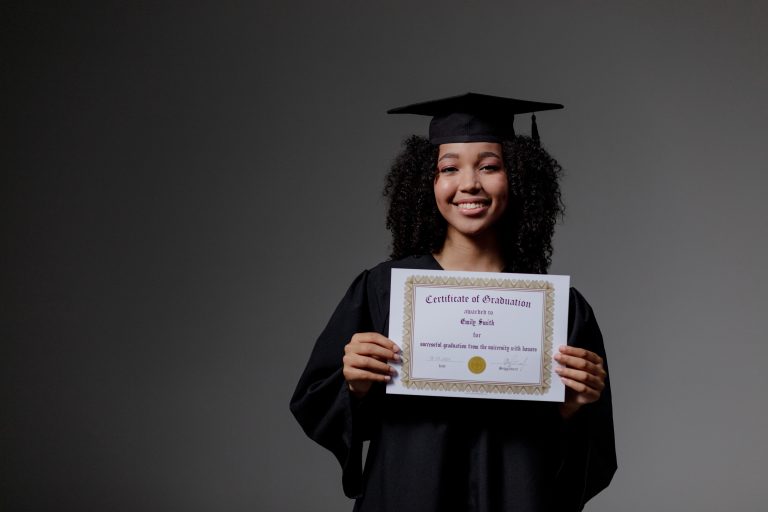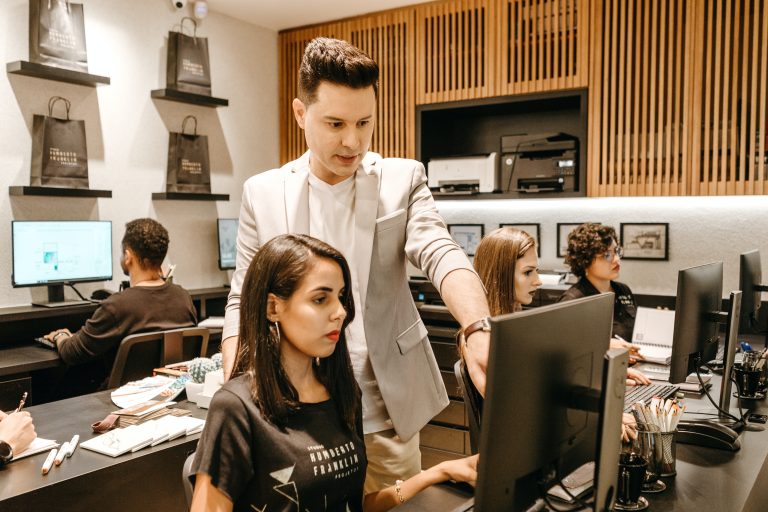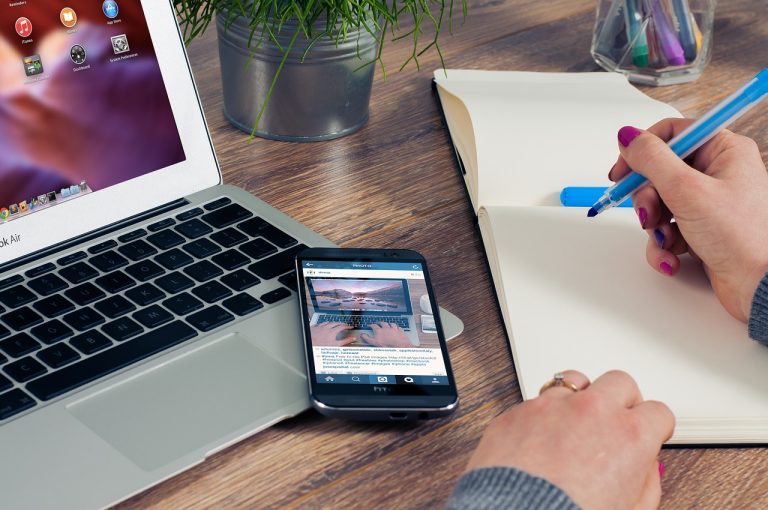How Do I Prepare For A Job Interview?
You’re eager to land your dream job, but you may be feeling unsure about how to prepare for the all-important job interview. Don’t worry, because help is here. Introducing “How Do I Prepare For A Job Interview?” This comprehensive guide is designed to equip you with all the essential tips and strategies you need to excel in your next job interview. From advice on researching the company to mastering common interview questions, this product has got you covered. So, get ready to boost your confidence and ace that interview with ease!

Research the Company
When preparing for a job interview, one of the first and most important steps is to research the company you are applying to. By familiarizing yourself with the company’s background, values, culture, products or services, and industry, you will be better equipped to showcase your enthusiasm and knowledge during the interview.
Learn about the Company’s Background
Take the time to understand the company’s history, how and when it was founded, and any significant milestones or achievements. This will not only demonstrate your interest in the company but also provide valuable context for your interview. Explore the company’s website, annual reports, press releases, and any news articles or industry publications that mention the company.
Know the Company’s Values and Culture
Companies often have a set of values or a corporate culture that guides their operations and decisions. Learning about these values and getting a sense of the company’s culture can help you determine if you would be a good fit within the organization. Look for information on the company’s website, blog, or social media platforms to gain insights into their values, mission statement, and any employee testimonials or stories.
Understand the Company’s Products or Services
Familiarize yourself with the company’s products or services in detail. This will allow you to speak confidently about what the company offers and how it differentiates itself from competitors. Take the time to explore the company’s website, read customer reviews or case studies, and understand the target audience or market for their offerings. This knowledge will enable you to discuss the company’s products or services intelligently during the interview.
Research the Company’s Industry
In addition to understanding the company itself, it is crucial to research the industry in which the company operates. Knowing the trends, challenges, and opportunities within the industry will demonstrate your understanding of the broader context in which the company operates. Stay updated with industry news, follow relevant blogs or podcasts, and read reports or studies that discuss the industry’s future outlook. This knowledge will enable you to speak confidently about the company’s position in the industry and any potential impacts on its future growth.
Review the Job Description
To effectively prepare for a job interview, thoroughly review the job description for the position you are applying to. Understanding the job requirements, matching your skills and experience, identifying key competencies, and preparing examples of relevant experience will help you stand out as a qualified candidate.
Analyze the Job Requirements
Carefully examine the job requirements listed in the job description. Pay attention to the essential qualifications, skills, and experience that the employer is seeking. By analyzing the job requirements, you will gain a clear understanding of what the employer is looking for in a candidate. This information will allow you to tailor your responses during the interview to highlight how you meet these requirements.
Match Your Skills and Experience to the Job
Once you have analyzed the job requirements, compare them to your own skills and experience. Identify the areas where your qualifications align with the needs of the position. When preparing for the interview, think of specific examples or projects from your past experiences that demonstrate how your skills and experience are relevant to the job. By showcasing specific examples, you will provide tangible evidence of your abilities and increase your chances of impressing the interviewer.
Identify Key Competencies
In addition to the specific skills and qualifications mentioned in the job description, identify the key competencies that are essential for success in the role. These competencies may include communication skills, problem-solving abilities, leadership qualities, or teamwork. Reflect on your own strengths and experiences that demonstrate these competencies, and be prepared to discuss them during the interview. By highlighting your proficiency in these areas, you will convey your suitability for the position beyond what is stated in your resume.
Prepare Examples of Relevant Experience
During the interview, it is common to be asked behavioral questions that require you to provide examples of past experiences. Review the job description and think about specific instances where you demonstrated the skills and attributes outlined in the requirements. Prepare concise and engaging stories that showcase your achievements, problem-solving abilities, teamwork, or any other relevant experiences. These examples will not only help you answer interview questions more effectively but also make a lasting impression on the interviewer.
Practice Common Interview Questions
Another essential aspect of interview preparation is practicing common interview questions. This will help you refine your answers, develop confidence, and ensure that you are well-prepared to handle any questions that may arise during the interview.
Prepare Answers for Behavioral Questions
Behavioral questions are a popular type of interview question that seeks to understand how you have handled specific situations in the past. Examples of behavioral questions include “Tell me about a time when you faced a challenge at work and how you resolved it?” or “Give me an example of a project where you had to collaborate with a diverse team.” Prepare answers to these types of questions by using the STAR method. This involves describing the Situation, Task, Action, and Result of the experience, highlighting your role and the outcome in each scenario.
Practice Your Elevator Pitch
An elevator pitch is a concise and compelling summary of who you are, your background, and what you can offer to a potential employer. It is typically around 30 seconds long, the length of an elevator ride, hence the name. Craft a well-structured elevator pitch that highlights your strengths, accomplishments, and why you are interested in the position. Practice delivering it in a confident and natural manner, ensuring that you capture the interviewer’s attention and leave a lasting positive impression.
Anticipate Technical and Job-specific Questions
Depending on the nature of the role you are applying for, you may also encounter technical or job-specific questions during the interview. These questions are designed to assess your knowledge and expertise in a particular area. Review the key technical or job-specific skills mentioned in the job description and prepare for questions related to those areas. If there are any specific topics or technologies mentioned, ensure that you are up-to-date and familiar with them, as the interviewer may ask you to demonstrate your knowledge or problem-solving abilities.
Prepare Questions to Ask the Interviewer
At the end of an interview, it is typical for the interviewer to ask if you have any questions for them. This is an opportunity for you to further demonstrate your interest in the position and the company, as well as gain valuable insights into the role and company culture. Prepare a list of thoughtful and relevant questions to ask, such as inquiring about the team dynamics, growth opportunities, or the company’s future plans. This shows that you have done your research and are genuinely interested in the position and the company.
Dress Professionally and Appropriately
First impressions matter, and your choice of attire can significantly impact how you are perceived during a job interview. It is important to dress professionally and appropriately, taking into consideration the company’s dress code and industry norms.
Research the Company’s Dress Code
Before deciding on your interview outfit, research the company’s dress code. Some companies may have a strict formal dress code, while others may have a more casual or business-casual culture. Look for clues on the company’s website, social media profiles, or reach out to current or former employees for guidance. Aligning your attire with the company’s dress code shows that you respect and understand its culture.
Choose Appropriate Attire
When in doubt, it is always better to err on the side of dressing more formally. Opt for a suit or a professional outfit that is appropriate for the industry and position you are applying for. Make sure your clothes are clean, well-fitted, and wrinkle-free. Avoid wearing excessive accessories or distracting clothing that may take away from the focus of the interview.
Ensure Neat and Tidy Appearance
In addition to choosing the right clothes, pay attention to your overall appearance. Ensure that your hair is well-groomed, your nails are clean and manicured, and any facial hair is well-trimmed. It is also important to iron your clothes, shine your shoes, and clean any visible accessories or jewelry. Presenting a neat and tidy appearance demonstrates professionalism and attention to detail.
Pay Attention to Grooming
Personal grooming is an essential aspect of your interview preparation. Take the time to shower, brush your teeth, and wear deodorant to ensure you feel fresh and confident during the interview. Pay attention to your breath as well, as bad breath can be distracting and create a negative impression. Avoid strong colognes or perfumes that may overwhelm the interviewer. The key is to maintain a clean and subtle scent.
Gather and Organize Necessary Documents
To avoid any last-minute stress or scrambling, gather and organize all the necessary documents you may need for the interview. This includes multiple copies of your resume, relevant certificates and references, and a portfolio of past work if applicable.
Prepare Multiple Copies of Your Resume
Always bring several printed copies of your updated resume to the interview. This allows you to distribute copies to each interviewer and ensures that everyone has a copy for reference. Make sure your resume is well-formatted, free of errors, and highlights your most relevant skills and experiences.
Collect Relevant Certificates and References
If there are any certificates or licenses that are relevant to the position you are applying for, gather them and have them ready to present if requested. Additionally, collect references from past employers, colleagues, or professors who can speak to your qualifications and work ethic. Ensure their contact information is up-to-date, and consider informing them in advance that they may be contacted for a reference.
Create a Portfolio of Past Work if Applicable
If the role you are applying for involves creative work or requires a portfolio, organize and assemble samples of your past work. This could include design projects, writing samples, or any other relevant materials that showcase your abilities. Arrange the portfolio in a professional manner and consider bringing digital copies on a USB drive or sharing an online portfolio link.
Organize Documents in a Professional Folder
To keep all your documents organized and easily accessible, invest in a professional folder or portfolio case. This will ensure that your documents remain clean, organized, and protected during transport. Being prepared and organized will demonstrate your attention to detail and professionalism.
Rehearse Your Responses
Practice and rehearse your interview responses to ensure that you are well-prepared and confident during the actual interview. This will help you articulate your thoughts clearly and concisely, allowing you to effectively communicate your qualifications and experiences.
Practice Answering Questions Aloud
One of the most effective ways to prepare for an interview is to practice answering potential questions aloud. Stand in front of a mirror or ask a friend or family member to simulate an interview scenario. This will help you become comfortable with expressing your thoughts verbally, refine your responses, and identify areas for improvement.
Time and Refine Your Responses
During your practice sessions, time yourself and ensure your responses are within an appropriate length. Aim to provide clear and concise answers that showcase your skills and experiences without rambling or going off-topic. Refine your responses by eliminating any unnecessary details or jargon and focusing on the key points you want to convey.
Use the STAR Method for Behavioral Questions
When preparing answers for behavioral questions, utilize the STAR method: Situation, Task, Action, and Result. Start by describing the situation or problem you encountered, then explain the task or goal you were aiming to achieve. Describe the specific actions you took to address the situation, and finally, highlight the positive results or outcomes of your actions. This structured approach ensures that your responses are well-organized and easy to follow for the interviewer.
Record and Review Your Mock Interviews
Consider recording your mock interviews so that you can evaluate your performance objectively. Pay attention to your body language, tone of voice, and overall delivery. Take note of any areas where you stumble or lack clarity, and make adjustments accordingly. By reviewing and analyzing your mock interviews, you can identify areas for improvement and refine your overall interview strategy.
Plan Your Logistics
To ensure a smooth and stress-free interview experience, plan your logistics in advance. This includes researching the interview location, arranging transportation, ensuring you arrive early, and having the necessary contact information readily available.
Research the Interview Location
Familiarize yourself with the interview location ahead of time. If possible, visit the location in advance so that you know exactly where it is and how to get there. If an in-person visit is not feasible, use online maps or tools to familiarize yourself with the area. Note any parking facilities, public transportation options, or landmarks that will help you navigate to the interview site with ease.
Plan Your Transportation
Consider the most convenient mode of transportation to reach the interview location. If you are driving, plan your route and allow sufficient time for potential traffic or delays. If you are relying on public transportation, check the schedules and plan for any transfers or connections. Ensure you have the necessary funds or tickets for your chosen mode of transportation.
Ensure Arriving Early
Punctuality is crucial for making a positive impression during an interview. Aim to arrive 10-15 minutes early for your scheduled interview time. This will allow you to settle in, gather your thoughts, and calm any nerves before the interview. Remember to factor in any potential delays or last-minute changes in your transportation plans when determining your departure time.
Prepare Contact Information of Interviewer
Have the contact information of the interviewer readily available in case you encounter any unexpected issues on the day of the interview. This may include their phone number or email address. If you have any questions about the location or logistics, reach out to the interviewer in advance to ensure you have all the necessary information.
Boost Your Confidence
Confidence plays a crucial role in the impression you make during an interview. By boosting your confidence, you project professionalism and increase your chances of succeeding. There are several strategies you can employ to bolster your confidence before the big day.
Reflect on Your Achievements
Take some time to reflect on your accomplishments and successes throughout your career or educational journey. Remind yourself of the skills you have developed and the challenges you have overcome. Recognizing your achievements will help boost your confidence and remind you of your capabilities as you enter the interview.
Visualize a Successful Interview
Visualization can be a powerful tool in building confidence. Imagine the interview going smoothly, envision yourself confidently answering questions, and see yourself receiving positive feedback from the interviewer. This mental rehearsal can help reduce anxiety and increase your belief in your ability to succeed.
Practice Positive Affirmations
Positive affirmations are statements that promote self-belief and motivation. Repeat affirmations to yourself that reinforce your skills, qualifications, and preparedness for the interview. For example, “I am well-prepared for this interview, and my skills and experiences make me a strong candidate.” These affirmations can help shift your mindset toward a more positive and confident outlook.
Take Care of Your Mental and Physical Health
Prioritize self-care in the days leading up to the interview. Get enough sleep to ensure you are well-rested and alert. Engage in activities that help you relax and reduce stress, such as exercise, meditation, or spending time with loved ones. Maintaining a healthy mental and physical state will contribute to your overall confidence and well-being.
Follow Professional Etiquette
During the interview, it is essential to demonstrate professional etiquette through your body language, eye contact, handshake, and active listening skills. These elements collectively contribute to creating a positive impression and conveying your professionalism.
Practice Good Body Language
Body language plays a significant role in how you are perceived during an interview. Maintain an upright and engaged posture, avoid slouching or crossing your arms, and keep your movements controlled and purposeful. Positive body language will convey confidence, attentiveness, and respect.
Maintain Eye Contact
Eye contact demonstrates attentiveness and engagement. Maintain regular eye contact with the interviewer, but avoid staring or making it uncomfortable. When listening, make sure to show interest and nod occasionally to acknowledge your understanding. Striking the right balance with eye contact will help create a connection and convey your genuine interest in the conversation.
Give a Firm Handshake
A firm handshake is an important component of professional etiquette. When greeting the interviewer, offer a confident and firm handshake, maintaining eye contact and a friendly smile. A weak or limp handshake may be perceived as lack of confidence, while an overly strong grip can be off-putting. Practice with friends or family members if you are unsure about your handshake.
Demonstrate Active Listening
Active listening involves fully engaging in the conversation and responding appropriately. Show your attentiveness by nodding, maintaining eye contact, and using verbal cues such as “I understand” or “That’s interesting.” Avoid interrupting the interviewer and allow them to fully finish their question or statement before responding. Active listening demonstrates that you value and respect the interviewer’s words and opinions.
Finalize Preparations
As the day of the interview approaches, take the time to finalize your preparations to ensure a seamless and successful experience.
Check and Recheck Interview Details
Double-check all the interview details, including the date, time, and location. Ensure you have the correct address and know how to navigate to the interview site. If possible, do a trial run of your journey a day or two prior to the interview to familiarize yourself with the route and estimate the travel time.
Ensure all Necessary Materials are Ready
Verify that you have all the necessary documents and materials ready to bring to the interview. This includes extra copies of your resume, certificates, references, and your portfolio if applicable. Pack your professional folder or portfolio case with these documents, as well as a notepad and pen for taking notes during the interview.
Get a Good Night’s Sleep
The night before the interview, prioritize getting a good night’s sleep. Ensure you have sufficient time to relax before bed, avoid caffeine or stimulating activities close to bedtime, and create a calm and comfortable sleeping environment. A well-rested mind and body will help you stay focused and perform at your best during the interview.
Eat a Healthy Meal Before the Interview
Make sure to have a nutritious meal before the interview to fuel your body and maintain your energy levels. Avoid heavy or greasy foods that may leave you feeling sluggish or uncomfortable during the interview. Opt for foods that provide sustained energy, such as whole grains, lean proteins, fruits, and vegetables. Stay hydrated by drinking plenty of water, but be mindful of not drinking too much before the interview to avoid frequent bathroom breaks.
By following these comprehensive steps to prepare for a job interview, you will position yourself as a knowledgeable and confident candidate. Researching the company, reviewing the job description, practicing common interview questions, dressing professionally, gathering necessary documents, rehearsing your responses, planning logistics, boosting your confidence, following professional etiquette, and finalizing preparations are all crucial elements in ensuring a successful interview. Remember to be yourself, stay positive, and showcase your skills and experiences authentically. Good luck!








